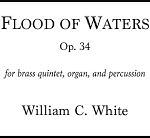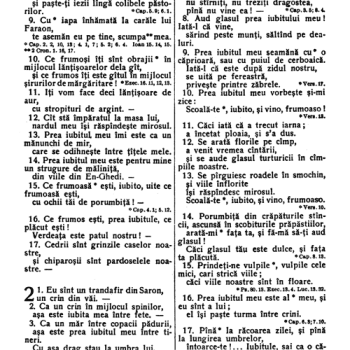It turned out to work perfectly that we were due to continue talking about the Lord’s Prayer yesterday. The “Our Father” on Mother’s Day makes for a great chance to talk about the gendering of God and the appropriateness of addressing God as Mother.
We began with the significance of Jesus’ use of the Aramaic word “Abba.” I emphasized (as I have before) that Abba does not mean “daddy.” It is simply the Aramaic word for (the) father. So what made it so significant that Mark transliterated it and so too did Paul, in two letters addressed to communities in which there would have been few if any speakers of Aramaic? I think we can deduce this when we consider the characteristics of Jewish prayer. On the one hand, there was a tendency to use Hebrew as the sacred language for prayer, which meant that people prayed in something other than their own spoken vernacular. On the other hand, we should compare the Lord’s Prayer to the ancient Jewish prayer in Aramaic that is most similar to it, and indeed which likely served as the prototype for the Lord’s Prayer, namely the Kaddish. It refers to the name being sanctified and the kingdom of God being established. But it does so not via second person address to God, but through third person expression of a wish: “glorified and sanctified be his great name…may his kingdom be established.” To address God as father in the Aramaic vernacular seems not to have been typical, which would explain why Jesus’ practice stood out as distinctive.
A father was primarily an authority figure in the ancient household, at least as far as expectations and stereotypes are concerned. Whether he was an approachable, even cuddly figure undoubtedly varied greatly then as now. And so this gave us a chance to think not only about how reference to God as Father could alienate those who had a negative experience with their own fathers, and also to talk about divine motherhood and motherliness.
Someone in the class helpfully and poignantly stated that if we leave feminine attributes out of the picture we are “missing half of God.” My thoughts immediately turned to the way humanity is said to have been created in the image of God in Genesis. It explicitly and emphatically states that it is precisely as male and female that human beings are in God’s image and likeness.
There was also a mention of the idea of “Mother Earth” which led to me asking if anyone knew where that idea comes up in the Bible. One is in Genesis when God commands the Earth to produce vegetation and animals. The other is in the Book of Job, when Job says that he came naked from his mother’s womb and naked he will return there. The Message translation of Job 1:21 captures the meaning precisely: “Naked I came from my mother’s womb, naked I’ll return to the womb of the earth.” That’s a detail I never noticed until a commentary drew my attention to it.
What did you talk about on Mother’s Day, whether in Sunday school or some other context?
I think there needs to be a setting of the Lord’s Prayer to the melody of some song by ABBA. It seems too punnily fitting for it to not be done. I still haven’t worked out which one might work, but I will surely keep thinking about it…













